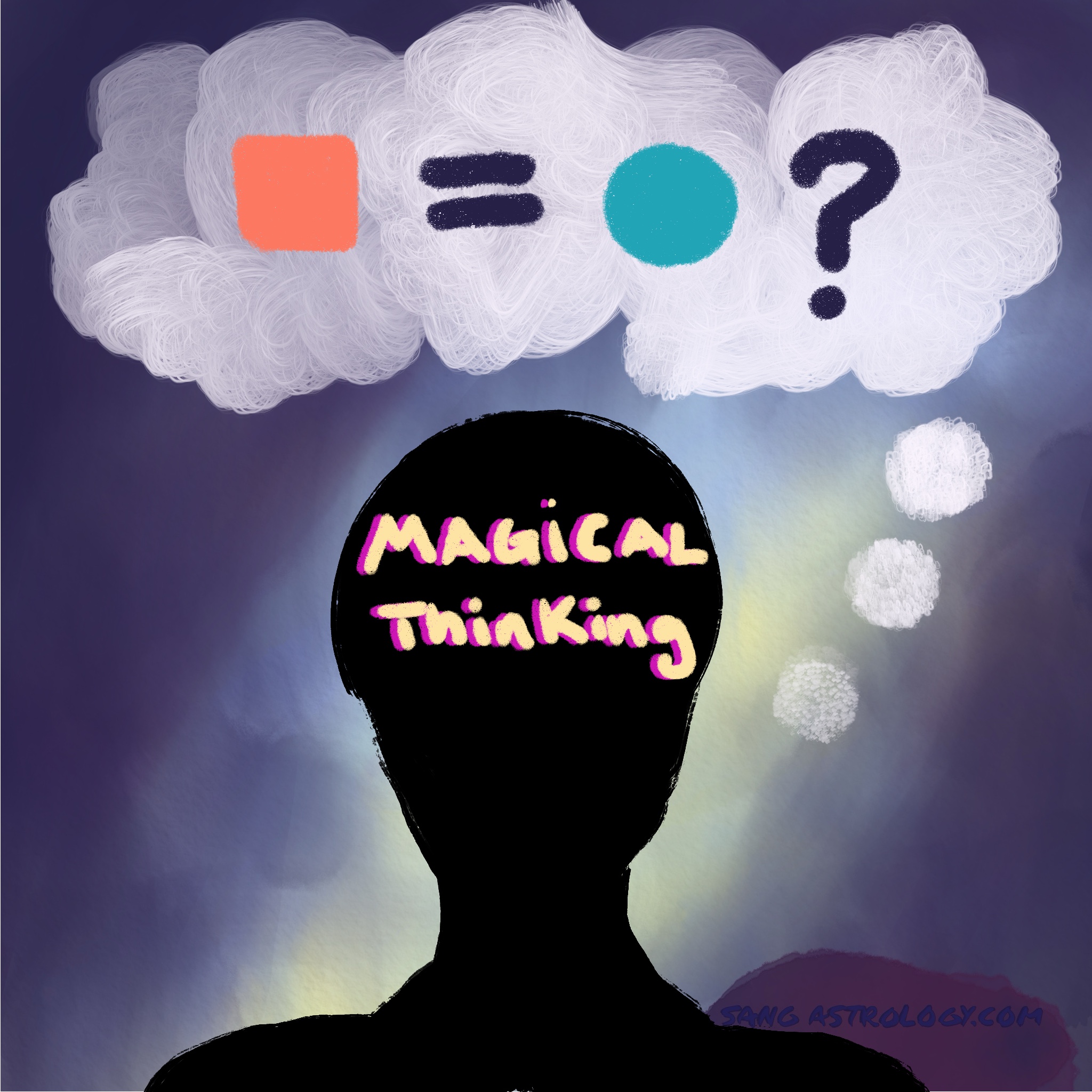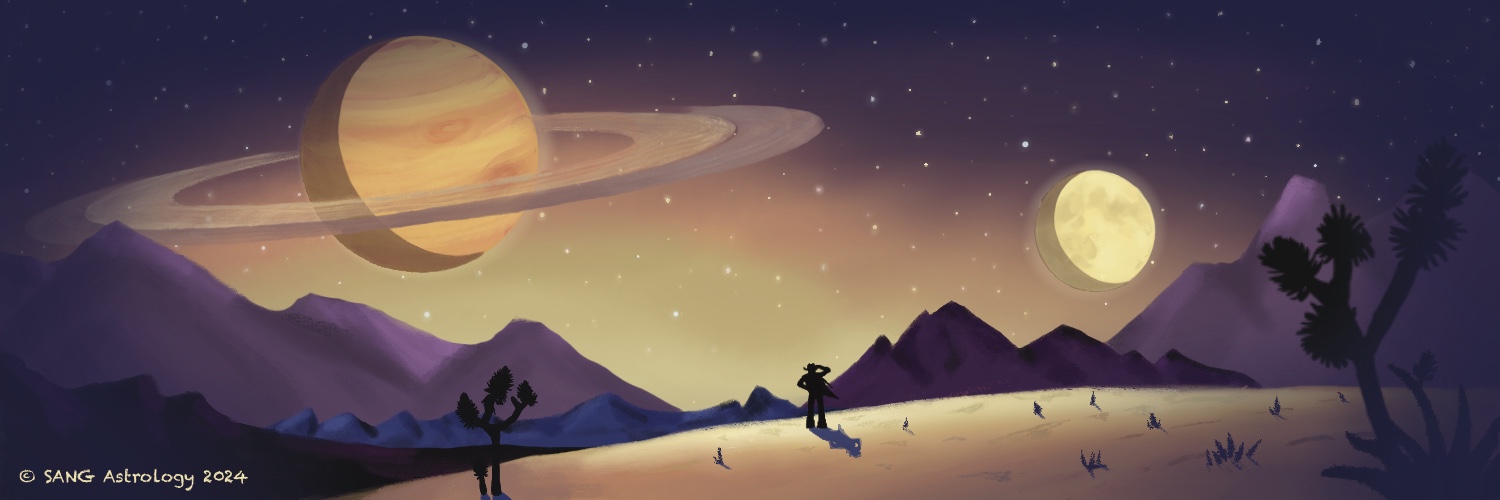How can you explore astrology without falling into magical thinking?
One of my first clients brought up this topic. He had recently left a high control religion and while he had interest in magic and mysticism, he was concerned about taking on a magical worldview. I grew up in that same religion and I had the same concerns on my journey into mysticism.

What is magical thinking?
It’s is distorted kind of thinking that doesn’t follow logic and disregards the evidence of reality. Cause and effect are wobbly. Too much magical thinking and you may risk falling into psychosis. Disorientation happens when you abandon truth and believe a lie.
We get into some trouble in astrology when we make claims that a particular planet causes a particular outcome. This is a shorthand astrologers tend to use. The real truth is that we don’t know the causality of astrological events—we only recognize that there’s a pattern of association, and that the pattern is ever changing as life on earth continues to progress and change. We astrologers can share about the pattern and we can share about the historical observations. But did Jupiter cause this a particular event? Or is Jupiter’s position just an omen? These are slightly different ideas, and the practice of astrology is not actually too concerned which one is the truth.
Astrology is built of logical systems, but it has its roots in ancient divination and intuition.
These are not the scientific method. These are mystical, subjective tools. To its credit though, astrology has a longstanding tradition of careful observation of the planets over long periods of time, quite similar to methods applied in the social sciences. Ancient mystics knew that it’s easy to get disoriented when you aren’t tracking your data, your predictions, and the outcomes. It’s easy to lie. It’s important to hold yourself accountable for your predictions and your mistakes. Proper astrological study is recorded and accountable. Astrologers compare their work with other astrologers, and continuously dig deeper into their understanding.
My view is that a good understanding of the root systems of astrology can actually be grounding. At its core, it’s about the patterns and powers that are at play in our lives. When you look at the astrological chart as a whole, with tried and trusted techniques in hand, you can unpack a lot of information that holds true. But we must always be careful to hold reality above our astrological interpretations, and adjust our understanding of astrology to match what is happening in reality. We do not want to demand that reality shapes itself to match our predictions.
Be careful with social media stereotypes.
Social media and pop culture astrology can be a bit ungrounding and disorienting. Making claims about what Mars in Gemini means, for example, will always be a little questionable, because there is always more complexity in the chart that effects how each planetary placement manifests. It’s a low-information stereotype. It may not hold true to a particular individual with Mars in Gemini, because they may have a factor in their chart that mitigates that planet’s position somehow. So don’t let social media astrology sway you if your gut tells you that something doesn’t fit. Try to use it as a tool for exploring your inner experience.
Your lived experience is always king.
I hope to build my astrological practice around helping people understand how to read their own chart and create their own narratives. Your lived experience is always king.
If you are finding astrology content disorienting—you may want to step away from it and focus on your experiences instead. Or, if you are up for it, you may want to dig deeper with a trusted professional and understand what is unique about your chart.
Originally Published 2025-07-27 at 19:05.
